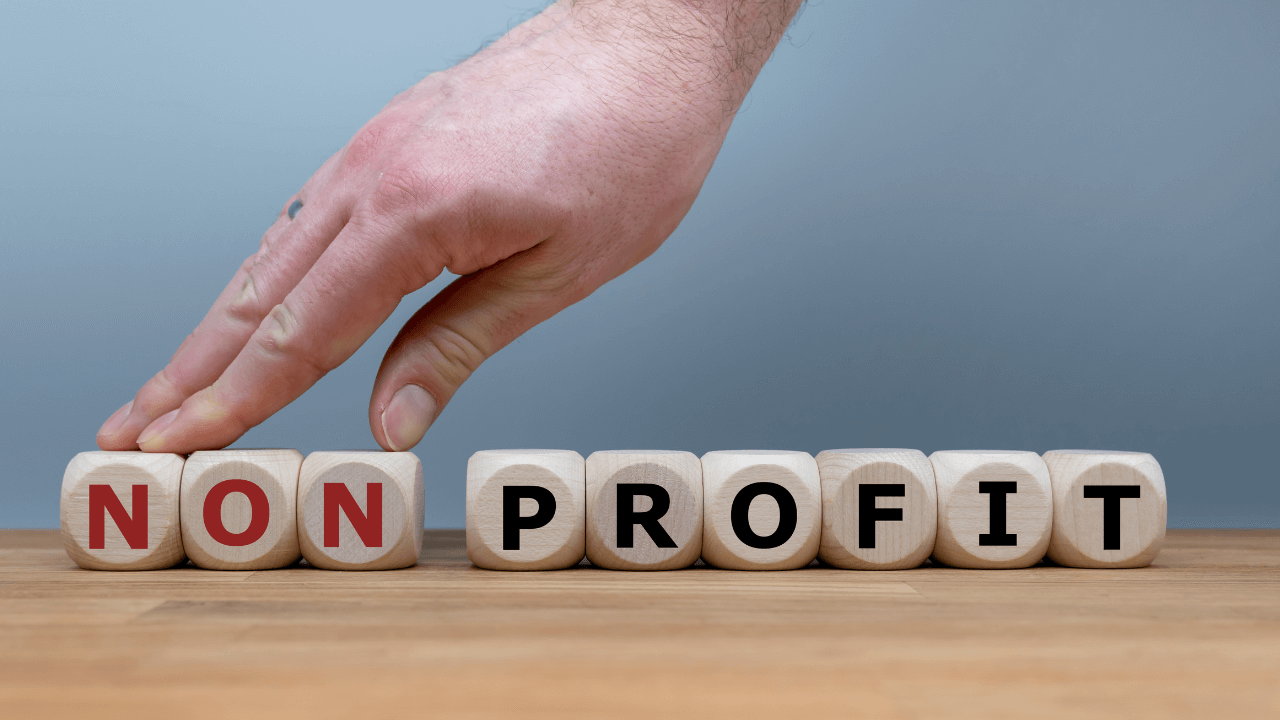Language:
How to Start a Record Label in 12 Steps

There could be several reasons why you might be interested in learning how to start a record label. Perhaps you’re an artist and want more control over the publication of your music or you’re a talented producer and want to share the music you’ve produced with the world on your terms. You’ll need to start a music label to do all of that but it can seem like an uphill battle, considering that the industry is dominated by three major music publishers.
Independent (indie) music labels are witnessing impressive growth. The US market share of indie labels has grown to 21.14% last year and is projected to climb further. There’s a lot of potential in this industry and it’s a great small business idea for someone who loves being in the business of music.
Why Should You Start a Record Label
A record label is in the business of music. It invests in artists and handles recording, publishing, and distribution in addition to promotion for a percentage of record sales. It’s common for indie labels to outsource some of these tasks to other companies as they don’t have the deep pockets that the major labels do.
There are many advantages to setting up a record label business. The biggest advantage is total creative control. As the owner of a record label, you choose the artists and the genre. Every decision regarding the publishing, promotion, and distribution of that music is under your control.
This allows you to achieve your vision for the business without any strings attached. Labels benefit from multiple streams of revenue that can include a percentage of record sales, a cut from streaming, live performances, licensing, and merchandise. The freedom to create original music is just the cherry on top.
The music business is highly competitive and indie labels often struggle to compete against the major labels that have the financial muscle to be more attractive to artists. For example, you may find it difficult to sign a new artist that’s also being courted by the major labels, as they will have more resources at their disposal to effectively launch the artist.
It can also be difficult for outsiders to establish a foothold in this business without any connections. People who start record labels typically have a music background and understand that this is a game of money, connections, and influence. The business also demands patience as it takes time to discover and develop new artists.
12 Steps to Starting a Record Label
The following steps on how to start a record label detail everything that you need to know. Even though the process seems simple enough, it’s important to get the basics right so that the business has a solid foundation.
1. Write a Business Plan
The business plan is an important document as it highlights the core values of your business and charts a course to profitability and growth. Your record label business plan should cover the following aspects:
- Choose a Record Label Name
- Choose a unique name for your record label that best represents the type of music you’ll be making. Once you’ve finalized the name, check the trademark database and do some research online to ensure that it’s not taken by another business.
- Define Your Goals
- Add your aspirations for the business to this document. Do you want to be a leader in a particular genre, sign a specific artist, create new revenue streams, etc? Everything that you intend to achieve should be included in the business plan.
- Determine Your Target Audience
- Research and define your target audience as this will directly influence the music you make, and how it’s promoted and distributed. This can be adapted once your label starts to grow so it’s not necessarily set in stone.
- Plan Who to Sign as Artists, Distributors, and Manufacturers
- Whether you’re scouting potential artists on social media or looking to sign established names, your business plan should highlight your approach to signing talent. This is also applicable to other partners such as distributors who will push your label’s music out in the world.
- Determine the Costs
- A solid financial plan is an integral part of this document. Include an estimate of how much it will cost to start and run the label. Add projections on how much potential revenue can be generated to break even and ultimately become profitable.
2. Secure Funding
If you haven’t saved up enough money to bootstrap it all the way, you’ll need to secure funding for your new record label. You could do that by asking friends and family members to invest in the business.
Crowdfunding is another good option, though you’ll need some slick marketing to convince the public to invest in your endeavor. Look into the various loan options offered by banks and credit unions. You could also search for small business grants to get the initial capital required for establishing the record label.
3. Decide on Your Business Structure
You’ll need to set up a legal entity for your record label. The reporting and tax requirements will differ based on the business structure you opt for. For example, the LLC tax rates will be different compared to a corporation. These are the most commonly used business structures for a record label:
Sole Proprietorship
A sole proprietorship is an unincorporated business structure that is owned and operated by a single individual. In this type of business, any profits earned are directly attributed to the owner, who must report and pay taxes on them through their personal income tax return.
However, the main drawback of a sole proprietorship is that the owner is personally liable for all the debts, taxes, and other liabilities incurred by the business. Despite this, the ease of formation and minimal paperwork requirements make it an attractive option for many entrepreneurs.
Limited Liability Company (LLC)
LLCs are a popular choice among small business owners because they offer personal protection by separating the business from the owner. This means that if the business cannot meet its financial obligations, the owner’s personal assets are safe. To become an LLC, the business needs to register with the Secretary of State where it’s based, and there are more paperwork requirements than for partnerships or sole proprietorships.
Partnership
A general partnership is a business structure similar to a sole proprietorship, but with multiple owners who share both profits and liabilities of the business. This means that all partners are responsible for the debts, taxes, and other obligations of the business, and their personal assets can be seized or liquidated if the business defaults. General partnerships also have similar documentation and reporting requirements as sole proprietorships.
Corporation
Corporations are unique legal entities that can acquire assets, borrow money, make contracts, and do more things independently. The owners of corporations have maximum protection against personal liability. Moreover, corporations can raise money by selling shares to investors. However, the main drawback of corporations is the strict reporting and paperwork requirements. That’s why many small businesses only become corporations when they are large enough to handle the additional costs and paperwork.
4. Register Your Record Label
The process of registering a record label business involves submitting relevant paperwork to the appropriate government department in the state or city where the business is located. For example, if the business is structured as an LLC, it must be registered with the Secretary of State. Additionally, an Employer Identification Number (EIN) is required, which can be obtained from the Internal Revenue Service (IRS) through a straightforward application process.
5. Acquire the Necessary Licenses and Permits
As an indie record label owner, it is essential to obtain the relevant permits and licenses to operate your business. These requirements vary by state and locality, so it’s crucial to check the specific regulations in your area. Once you have identified the necessary permits and licenses, be sure to apply for them promptly to ensure your business is compliant with all legal requirements.
6. Open a Business Bank Account
Opening a business bank account is a crucial step when starting a record label business. It helps to separate your personal finances from your business finances, which is an essential requirement. It also provides transparency in tracking the cash flow of your business.
To open a business bank account, you’ll need to provide the necessary paperwork, such as your LLC formation documents and personal identification documents to your preferred bank. However, with doola Banking, you can open a US-based business bank account entirely online, making it a much more convenient option.
7. Get Business Insurance
Getting adequate insurance coverage is vital to ensure that your business remains protected in the event of an incident. There are a variety of insurance policies that you can choose from. They will typically cover loss from theft and natural disasters as well as protect against financial liabilities stemming from lawsuits. Consider the following insurance policies when setting up your record label business:
- General liability
- Property
- Copyright
- Workers’ Compensation
You may choose any conventional insurer to obtain the necessary coverage. Online insurers also provide similar policies and typically have lower premiums. They’re also more convenient to use as the entire process can be done online.
8. Hire and Train Your Team
Growing an independent record label is going to be a monumental task, one that’s difficult to achieve on your own. You’ll need to put together a team of like-minded and driven individuals that can help take your business to new heights.
These will include music producers, PR managers, talent scouts and managers, accountants, etc. Take your time during the hiring process to find the right people. Train them effectively so that they understand your vision for the business.
9. Sign Your Artists
This can be one of the more difficult parts of the process. You’ll need to convince artists why they should trust your label with the success of their careers. It’s easier to convince them if you have a solid track record of elevating artists to stardom but for new record labels, it can be an uphill battle.
Realistically, your chances of poaching a superstar that’s signed to a major record label will be slim until your label has the influence and financial muscle required to support their careers. Focus on up-and-coming artists.
Work with music scouts to discover new talent. Unsigned artists will be looking for a break and will be more likely to sign even with a brand-new record label. You’ll just need to make them trust in your vision enough that they agree to go on the journey with you.
10. Start Recording Albums
Once you’ve signed the artists, work with them to record singles and albums. The sooner you can put music out the faster your label earns recognition. Singles are a great way to get the hype going as recording entire albums tends to take a lot of time.
Your label doesn’t need its own recording studio, at least not initially, when it may be difficult to make that significant investment. Just rent time in an established studio and record music there. Once your label starts to become profitable, you may consider making that investment in a recording studio.
11. Work on Distribution and Record Manufacturing
You’d want your label’s music to reach as many listeners as possible. This will require effective distribution, which is one of the tougher aspects of running a record label. Physical distribution will require the manufacturing of CDs and vinyl records. Work with a manufacturing company to produce the physical copies which can then be distributed to wholesalers and music retailers.
Digital music distributors have made it easier, though. Make your music available for download and streaming on digital platforms like Spotify, Apple Music, Amazon Music, etc. These distributors typically have standard terms for revenue split and fees.
12. Promote Your Record Label, Albums, and Artists
Focus on gaining as much exposure as possible for your label and the artists that it represents. Start by creating a nice website that provides information about the label, its artists, the music it has produced, and the various distribution channels through which the music can be streamed, downloaded, and purchased.
Work on website SEO and launch targeted content marketing campaigns to increase reach. Create accounts on social media networks to increase exposure. Cash in on social media trends to promote music and artists. Run PPC advertising campaigns to target search queries that are relevant to your label.
Offline promotions are equally as important. You can organize shows and concerts with dedicated fan experience zones. Work with different media outlets to get your artists on daytime and late-night TV talk shows where they can talk about and play their music to increase their reach.
Make Managing Finances Music to Your Ears
Keeping track of finances can be difficult for record labels. There are streaming and digital download revenues to keep track of, royalty payments for artists, profits for merchandise sales, salaries for employees, etc. As you can imagine, tracking all of this is no small feat.
A service that can take care of it all would sound like music to your ears, no? That’s precisely what doola Bookkeeping is. It’s like having a dedicated bookkeeper that understands your business, accurately tracks all income and expenses, never misses a single detail, and helps you close your books at the end of the year with a simple click.
FAQ
Can anyone start a record label?
Anyone can start a record label. There are no official requirements or limitations as to the type of person who is eligible to start a record label. If you have a passion for music and the ambition to launch a business, you’re eligible to start a label.
How to start a digital record label?
You can start a digital record label by registering a business entity and obtaining the required licenses and permits. Once the business end of things is sorted, you can distribute music digitally through platforms like Spotify and Apple Music.
How much does it cost to start a record label?
The costs vary considerably depending on the type of record label you want to launch, the artists you’re looking to sign, whether the label will have its own recording studios, etc. If you’re launching a purely digital label with your own music to distribute, the cost will be considerably less.
Is it profitable to start a record label?
It can be quite profitable to start a record label, however, it ultimately comes down to how popular the music is going to be. The more people are willing to pay for a record or are willing to stream it more frequently, the more money the label will make. The label also makes money through other ventures such as concerts, guest shows, merchandise, etc.
Do record labels pay singers?
Record labels pay signers a royalty which is usually a percentage of profits from streaming and the sale of physical records. It’s also common for artists to be paid a signing bonus when they’re signed by the label.
Keep reading
Start your dream business and keep it 100% compliant
Turn your dream idea into your dream business.














